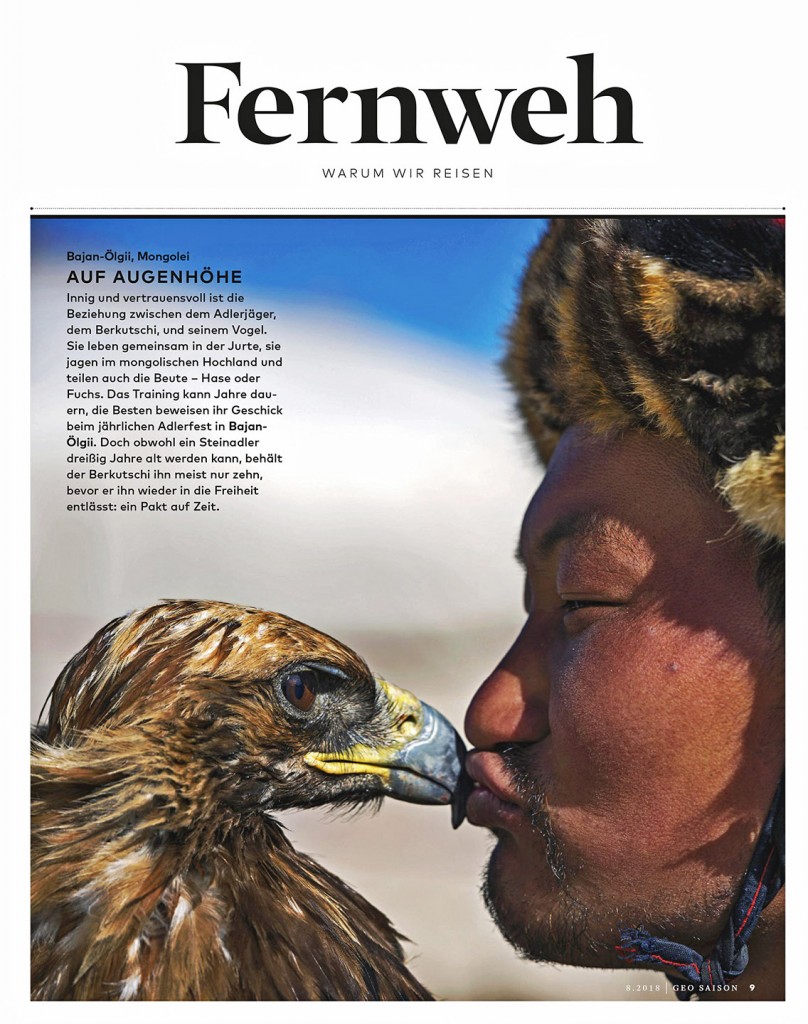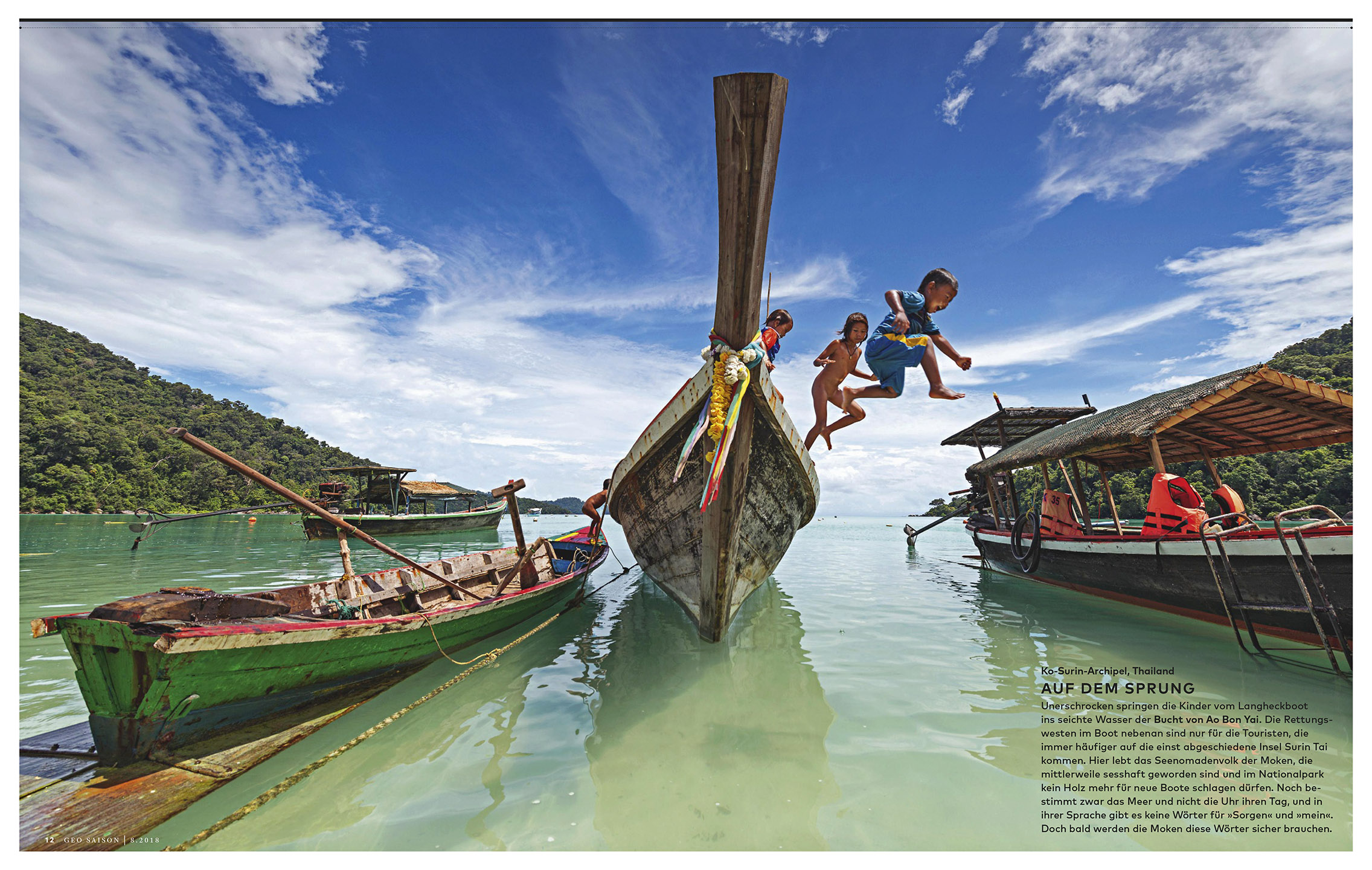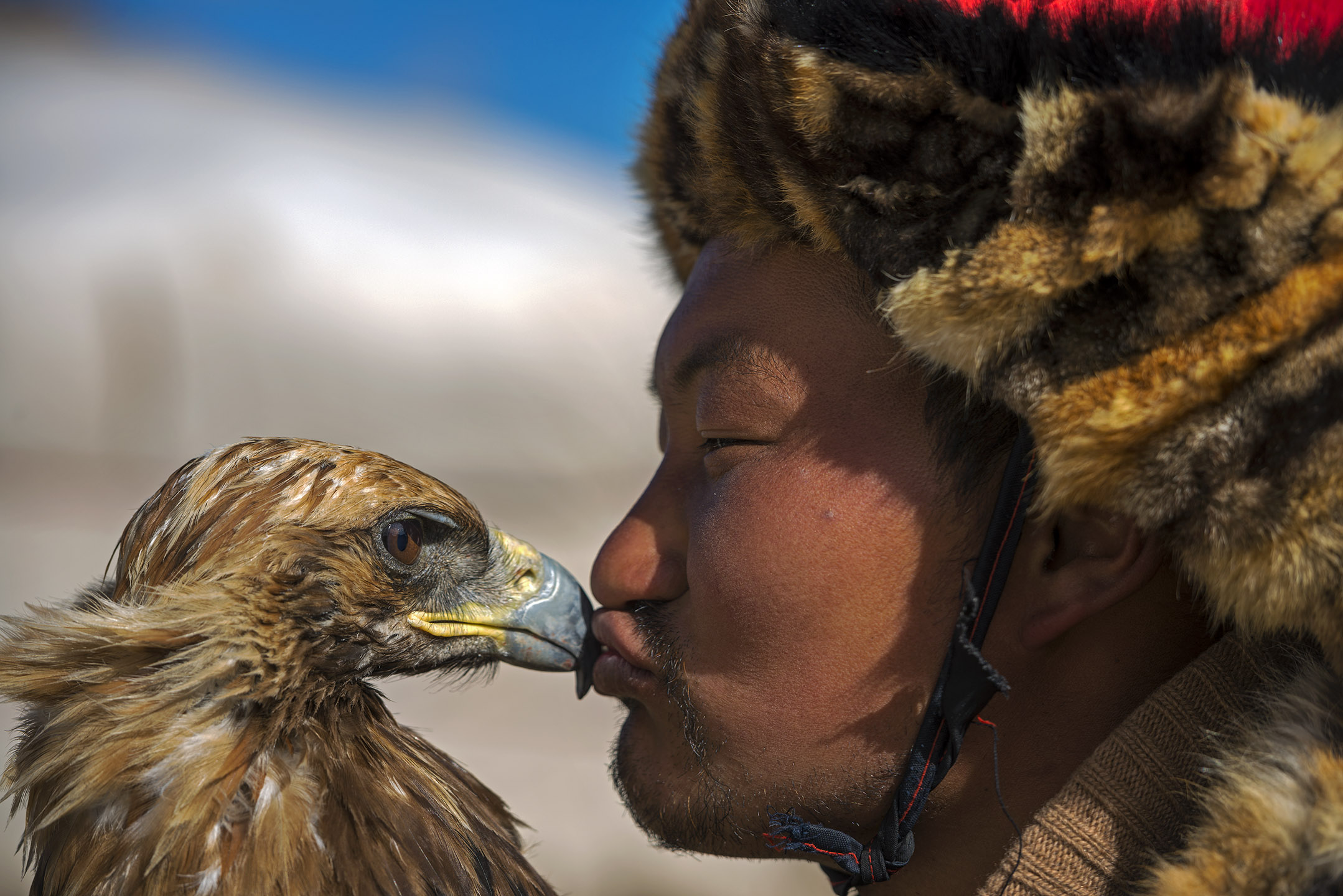Fernweh /ˈfɛʁnveː/ {n}
Wanderlust means the desire to travel. Fernweh elevates that urge to a need.
Others say it is the opposite of homesickness. That means one feels sick
when at home too long; lethargic and sad. A person who has fernweh
feels best when not at home. There is a magic in being completely
separated from one’s cultural and personal environments —
untethered, free, fully-engaged and completely relaxed.
A number of years ago, a collection of my Bhutan photography appeared on the cover and inside pages of respected European magazine, GEO Special. It’s been a long time, but this month two more of my photographs — a portrait of Alpamys Dalaikhan, a burkitshi (eagle hunter) kissing his eagle in Bayan-Ölgii, Mongolia and a picture of joyous Moken (sea gypsy) children leaping off a traditional long tail boat into the shallow sea at Ao Bon Yai, Thailand — are included in the Fernweh opening section of GEO Saison, Germany’s leading travel magazine.
Spending time with, and documenting, the great eagle hunters of western Mongolia and the warm and welcoming seafaring Moken of western Thailand were two of my professional highlights of 2017. Which makes it feel even better to have photography from these two assignments chosen to feature in the pages of the esteemed GEO Saison. Absolutely, “there is a magic in being completely separated from one’s cultural and personal environments — untethered, free, fully-engaged and completely relaxed.”

Bayan-Olgii, Mongolia — Cradled on the desolate edge of western Mongolia, wedged tightly between Russia and China and tucked in the shadow of the magnificent snow-capped Altai Mountain range, is Bayan-Ölgii Aimag (Province). It’s here, in a valley just outside the provincial capital of Ölgii, that the annual gathering and celebration of the burkitshi (eagle hunters) is held. Training an eagle can take years, and the bond that is created between the burkitshiand his bird is extraordinary. The intimate connection, deep reverence and fierce loyalty that exists between man and beast is fascinating to behold. It is not uncommon to see an eagle gently swaddled in a blanket or jacket and being carefully carried by the hunter. And although eagles can live for 25-30 years, the hunters typically only keep their eagles for around 10 years before releasing them back into the wild.

Koh Surin, Thailand — Surin Moken children leap from a traditional long tail boat into the shallow waters off Ao Bon Yai on Koh Surin, a national park located 60km from the Thailand mainland of Phang Nga. The Moken “sea gypsies” are a small community of formerly nomadic, seafaring people who used to spend their lives at sea, travelling between the islands of Myanmar and Thailand and surviving off what they could harvest from the ocean and the land.


Share your thoughts